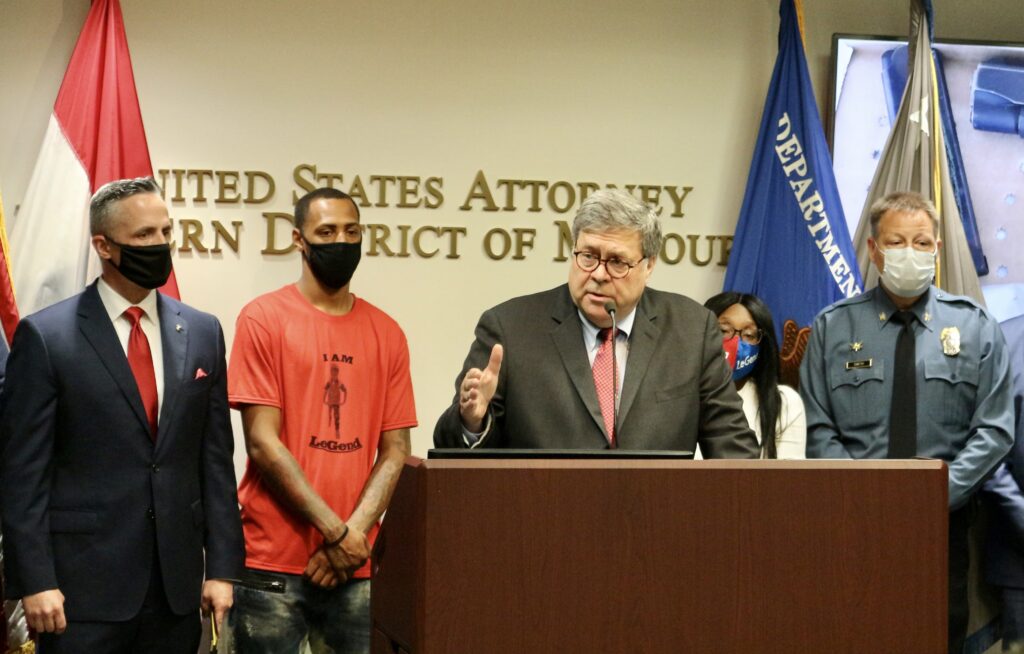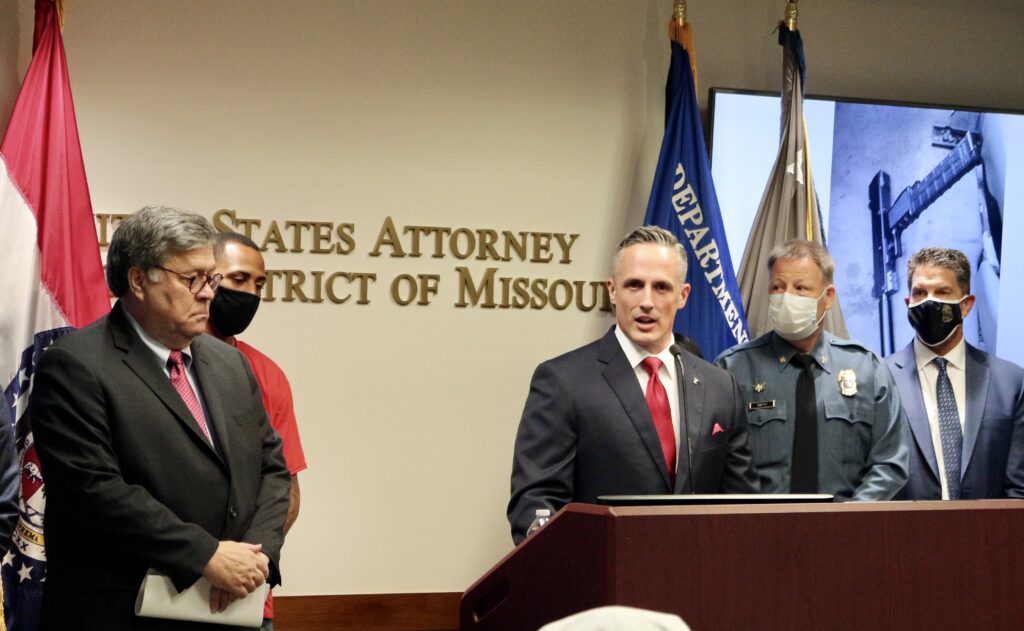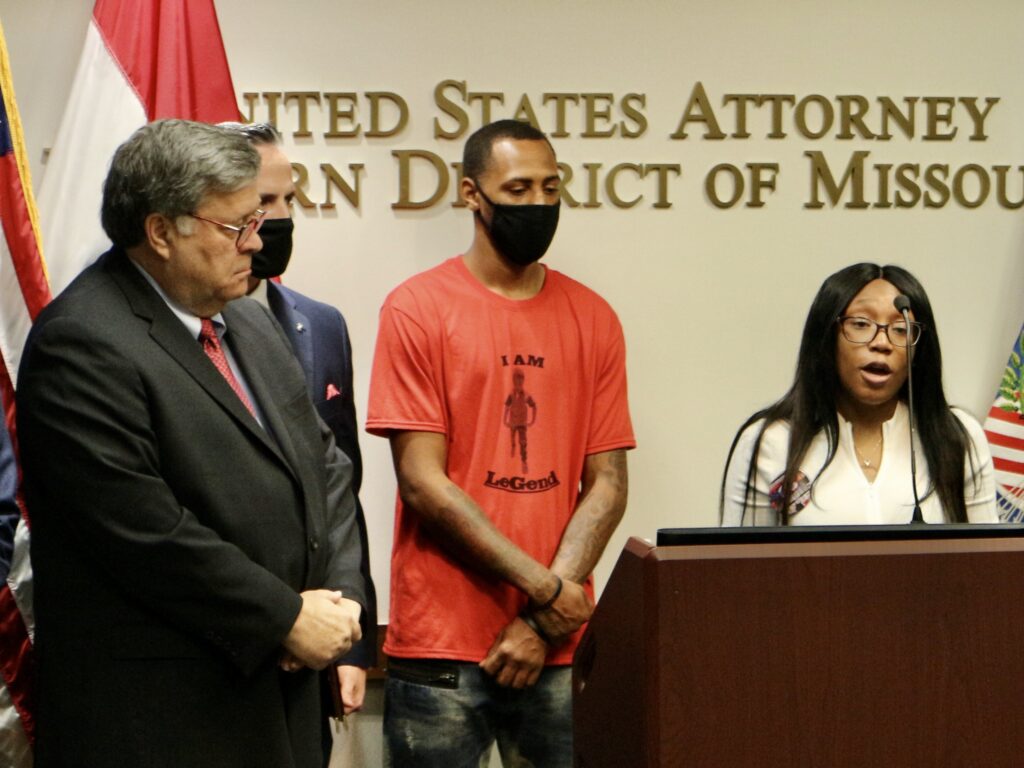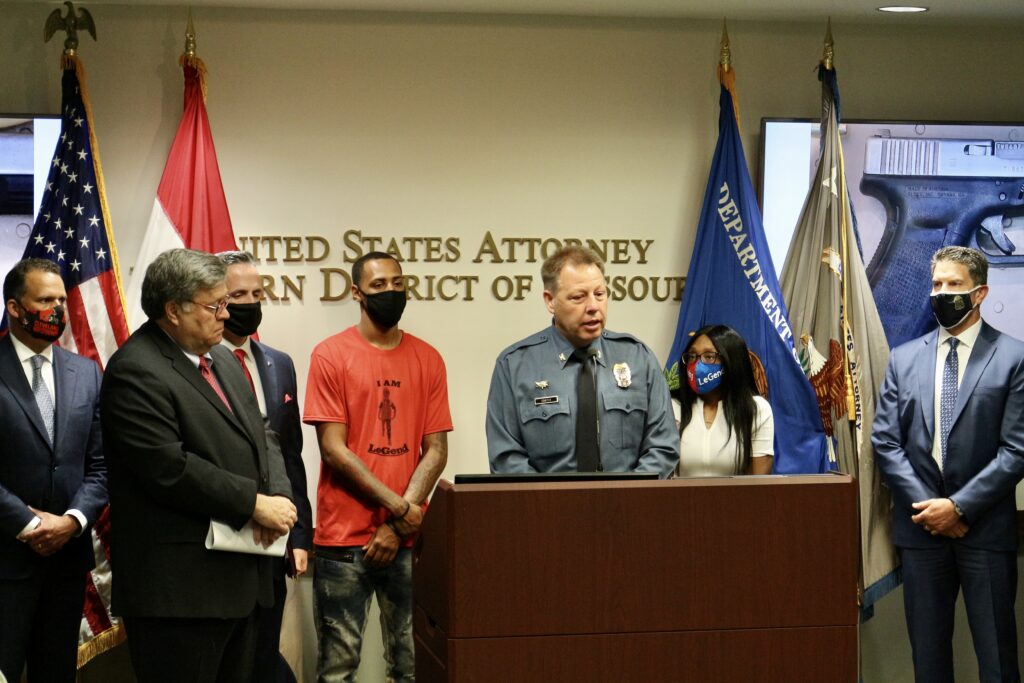
Last month the Department of Justice (DOJ) announced Operation Legend, which sent investigators from the Federal Bureau of Investigation (FBI), Drug Enforcement Administration (DEA), Bureau of Alcohol, Tobacco, Firearms and Explosives (ATF) and the United States Marshal Service to assist the Kansas City Police Department in response to an unprecedented surge in violent crime in the city.
U.S. Attorney for the Western District of Missouri Tim Garrison said the agents were sent to support, not supplant, the local department. Kansas City has had 124 homicides so far this year.
“In June Kansas City had more than three killings every four days,” Garrison said. “Since our announcement on July the 8th, that rate has been reduced to fewer than three killings every five days.”

Garrison said the clearance rate, the rate of homicides that are solved and referred to the prosecutor has increased from 34% on June 1 to 45% today.
“Violent crime is terrifying,” Garrison said. “It destroys people and it destroys communities, and it has to stop. We must have rule of law.”
In the four weeks since the operation began in Kansas City, 18 suspects have been arrested. Garrison said five of those have been formally charged. The operation has also led to the seizure of over 70 illegal firearms in Kansas City, Garrison said.
U.S. Attorney General Bill Barr called Operation Legend one of the most significant operations in the DOJ, adding that one of the key factors in launching the operation in Kansas City is due to the city’s “superb police department and outstanding leadership.”
Three weeks ago Operation Legend was expanded to eight more U.S. cities: Chicago, Albuquerque, New Mexico, Detroit, Cleveland and Milwaukee, St. Louis, Memphis and Indianapolis. U.S. Attorneys from these cities and Deputy Director of the FBI David Bowdich joined Barr for the Operation Legend update Wednesday.
Since the operation began, more than 1,000 additional federal agents have been sent to these cities to work with local and state agencies, 185 of those in Kansas City. Barr met with KCPD homicide detectives Wednesday.
Barr said the DOJ has allocated $78.5 million to support the operation through grants and other funds. The grants have gone to support additional police positions, hire more prosecutors in some states, and to update technology, particularly for crimes involving firearms.
The operation was named in honor of 4-year-old LeGend Taliferro who was shot while sleeping in his family’s apartment.
“Operation Legend is the heart of the federal government’s response to this uptick in violent crime,” Barr said Wednesday. “Its mission is to save lives, solve crimes, and take violent offenders off our streets before they can claim more victims.”
Last week Kansas City police arrested a suspect for the murder of Taliferro with support from the FBI.

Taliferro’s mother Charron Powell urged others to bring forward information about other recent homicide cases in Kansas City.
Kansas City Police Department (KCPD) Chief Rick Smith said the support of federal agents absolutely makes a difference in solving homicides.
“We wouldn’t have solved the cases as timely as we had, we wouldn’t have suspects in custody, without our federal partnerships,” Smith said.

Operation Legend has produced 1,485 arrests across the nine cities, many of which are for violent state crimes, including 90 homicides. Of those arrested, more than 200 have been charged with federal crimes, and others have been charged at the state level.
“That’s more than 90 suspected killers who might still be on the streets without Operation Legend,” Barr said. “In many cities, like I said, the operation is just getting started.”
Barr thinks pent up aggression compounded by stay-at-home orders may have contributed to the rise in violent crime, but he said much of it has to do with the premature release of dangerous criminals by prosecutors. Pre-trial detention and harsher sentences are important steps to ending the “revolving door” of violent criminals, Barr said.
“I think it also is related to the efforts that we’ve recently seen to demonize police and to defund their work,” Barr said.
U.S. Attorney for the Northern District of Ohio Justin Herdman said U.S. Marshals have apprehended over 1,000 fugitives, which stand a much better chance of remaining in custody.
Although the DOJ has spent 70 to 80 years researching the root cause of violent crime, Barr said Operation Legend is not working to address the root causes of violent crime but to put away violent criminals. Barr said other agencies should be focused on the social issues that cause increased crime, like mental illness, homeless and drug addiction that law enforcement agencies have been confronted with in recent years because other agencies “dropped the ball.”
“None of the efforts to rehabilitate communities can bear fruit in an atmosphere of bloodshed, so the step, in my view, is to provide safety to communities, and that’s the job of law enforcement,” Barr said.
While the federal agencies will always have a strong presence in Kansas City, Barr said the levels of additional resources being committed will be adjusted going forward.

















